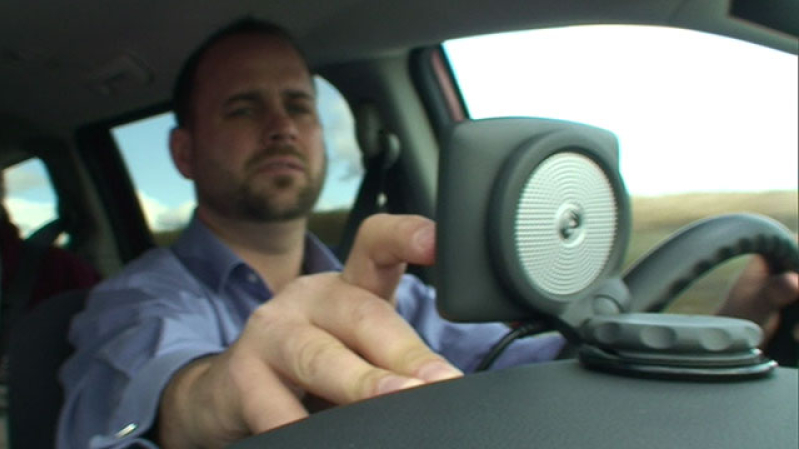
A family from Portland, Oregon has reportedly been stranded in a snowy mountain road due to the "shortest route" direction given to them by their GPS device.
The Sanquist family was traveling with the couple's daughter and dog. They were on their way to California. Apparently the vehicle's GPS (as with any GPS, which, by default, shows the "shortest route" when this option is clicked) led them into Happy Camp Road, near Page Mountain Sno-Park, Oregon. This direction also meant having them stuck in a snow-laden area with no mobile signal.
Ron Sanquist says, "I'm not even sure if I had a shovel, I could have dug out." He then tried to look for help and within two miles of walking amidst snow and ice, was able to get a 911 call. The rescue team arrived in a little over 17 hours. The family of three and their dog were then returned back to safety.
GPS (Global Positioning System, also called Navstar GPS or Navstar), is a global navigation system that uses the world's satellites to make real-time location and time positioning possible. It was launched in 1973 in the US; however, its predecessors date back to World War II.
Brandon Wales, Director of the Department of Homeland Security's Homeland Infrastructure Threat and Risk Analysis Center, says that while GPS has been phenomenal for state, business and individual use, "critical infrastructure sectors are increasingly at risk from a growing dependency on GPS for positioning, navigation, and timing (PNT) services."
Wales adds that many are not fully aware of how GPS works, and this is where the problem lies: "You've got a highly accurate, very robust system, that has proven to be highly reliable, embedded in a lot of systems that people are not fully aware of."
He is referring to GPS' inability to distinguish among 'reliable' satellite units; thus, disruptions such as radio frequencies, jamming devices, or other signal interferences can undermine the integrity of GPS' output. This inability leads to incorrect directions that people are led into trusting all the time.
Previous GPS accidents include a woman driving straight into a bay in Tobermory, Ontario, Canada as she was following GPS instructions through foggy weather, leading her to miss the road. She was lucky to be alive.
However, others are not so lucky. A woman in Brazil was shot dead as she was led into a slum area. She was then traveling with her husband and they were supposed to go to the beach. However, the Waze app led them toward Niteroi, an infamous drug gang area.
Chris Matyszczyk, Executive Director of consultancy group Howard Raucous LLC, says, "Gadgets only know so much. The problem is that they act as if they know it all and humans are all too ready to believe them. I think, you know, humans rather like the thought of living in a gadget-ruled authoritarian world."







